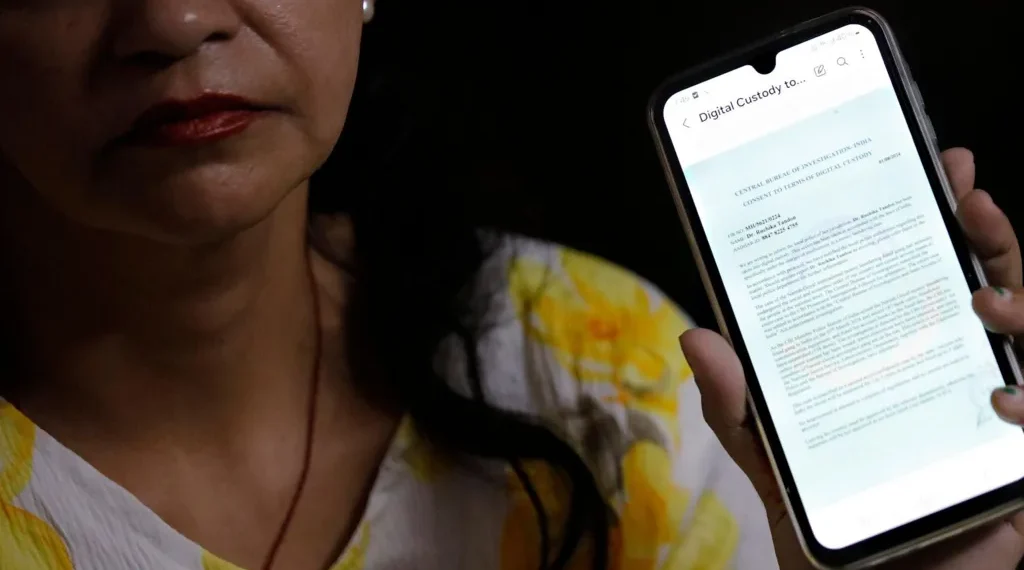You Are Under Digital Arrest: How a Scam Looted Millions from Indians
Introduction to a High-Tech Hoax
In August, 44-year-old neurologist Dr. Ruchika Tandon from Lucknow, India, fell victim to a sinister scam that drained her family’s life savings. Under the guise of a “digital arrest,” fraudsters manipulated her into believing she was involved in a grave federal investigation, coercing her to transfer nearly ₹25 million (around $300,000). This scam, which has victimized many Indians, highlights the dangers of cyber fraud.
The Mechanics of the ‘Digital Arrest’ Scam
Scammers posing as law enforcement officials use video calls to threaten victims with arrest over fabricated charges. They demand money transfers, claiming it’s necessary for “government verification” or bail. Victims are coerced into constant surveillance, isolated from family, and forced to surrender their finances.
Dr. Tandon’s ordeal began with a call from someone impersonating a telecom regulator, warning her of alleged complaints linked to her phone number. This escalated to threats of arrest for “money laundering related to trafficking.” The scammers demanded she purchase a smartphone for better surveillance and monitored her life via Skype for six days.
The Human and Financial Toll
Over the course of her “digital arrest,” Dr. Tandon endured staged trials, relentless questioning, and emotional manipulation. The scammers also exploited her family, including her elderly mother. Eventually, she was convinced to transfer her entire savings to their accounts.
This isn’t an isolated incident. Between January and April 2024, Indians lost over ₹1.2 billion to similar scams. Investigations reveal that many operations are based in Myanmar, Cambodia, and Laos, with stolen money often funneled into cryptocurrency.
Victims and Resistance
Journalist Nilanjan Mukhopadhyay narrowly escaped a similar scam in July. Recognizing discrepancies in the scammers’ narrative, he disconnected his modem and alerted friends. His quick thinking saved him from financial ruin.
Authorities have arrested 18 suspects linked to Dr. Tandon’s case, recovering part of her stolen funds. Yet, the psychological impact lingers. Victims like Dr. Tandon struggle with anxiety and paranoia, haunted by the trauma of their experiences.
Government and Public Response
Indian Prime Minister Narendra Modi addressed the issue in October, urging citizens to remain vigilant against such scams. Law enforcement officials emphasize public awareness as a critical defense against cyber fraud.
The Scammers’ Strategy
Investigators reveal that the scammers are well-educated professionals, including engineers and cybersecurity experts. They meticulously gather personal data from social media to exploit victims’ vulnerabilities. However, their errors—such as misrepresenting financial procedures or legal insignias—sometimes raise suspicion and offer victims a chance to escape.
Conclusion
The “digital arrest” scam is a stark reminder of the growing sophistication of cyber fraud. While victims like Dr. Tandon work to rebuild their lives, the public must remain cautious, informed, and proactive in safeguarding personal information.
This article was rewritten by JournosNews.com based on verified reporting from trusted sources. The content has been independently reviewed, fact-checked, and edited for accuracy, neutrality, tone, and global readability in accordance with Google News and AdSense standards.
All opinions, quotes, or statements from contributors, experts, or sourced organizations do not necessarily reflect the views of JournosNews.com. JournosNews.com maintains full editorial independence from any external funders, sponsors, or organizations.
Stay informed with JournosNews.com — your trusted source for verified global reporting and in-depth analysis. Follow us on Google News, BlueSky, and X for real-time updates.














